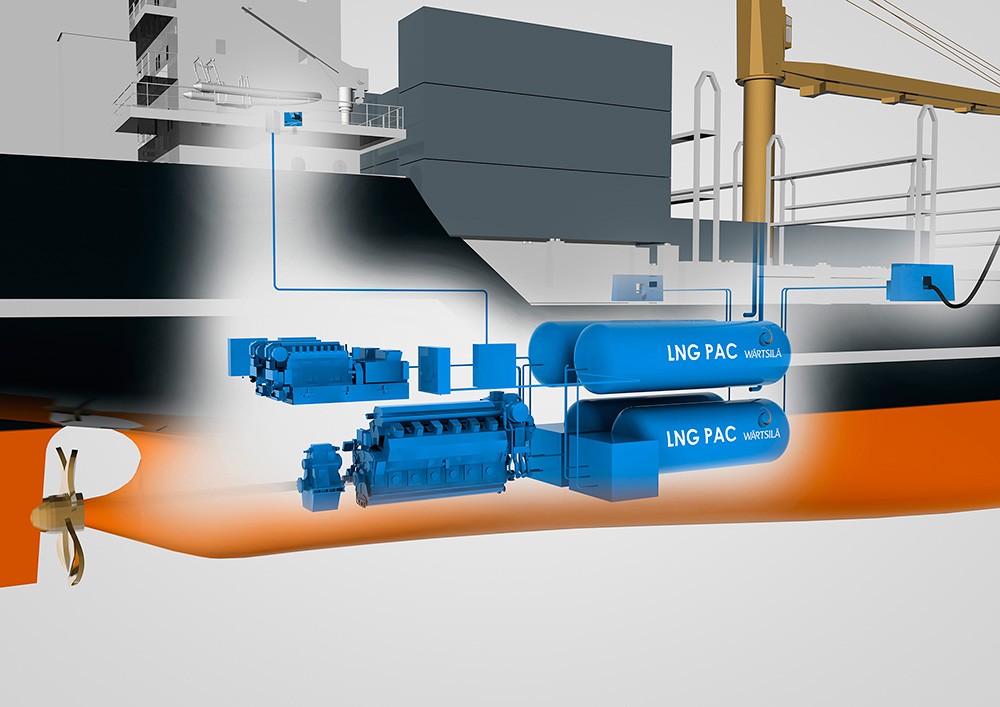Gas-fuelled ship code on home stretch
The IGF Code – primarily designed to safeguard operations of the expected wave of LNG-fuelled ships – is on its last lap as the IMO’s Maritime Safety Committee signs off the final draft.

In its last session of the year, the IMO’s Maritime Safety Committee approved, in principle, the draft International Code of Safety for Ships using Gases or other Low-flashpoint Fuels (IGF Code). The IGF Code will set a framework for the use of liquefied natural gas as a fuel, which has proved increasingly popular with ship owners and operators given its lower cost.
A DNV GL update from earlier in the year toasted the fact that the industry had passed the milestone of 100 confirmed LNG fuel projects worldwide. “While 90% of all LNG fuelled ships worldwide are still only sailing in Norwegian waters, the confirmed orderbook tells a different story,” said the class society. “There is an equal share of ships intended for operation in Norway, Northern Europe and North America. We also see that LNG has started to make its way into the deep sea market.”
Orders for ‘LNG ready’ ships – built to switch to LNG fuel when ready – are also increasing. DNV GL estimates that there will be 1,000 LNG fuelled ships by 2020.
To meet this growth the IMO MSC has been working on the IGF Code to be a step ahead of the widespread introduction of LNG-fuelled ships. In November, the MSC approved, in principle, the draft IGF Code and also approved proposed amendments to make the Code mandatory under SOLAS, with a view to adopting both the IGF Code and SOLAS amendments at the next session, MSC 95, scheduled for June 2015. Associated draft amendments to the 1978 and 1988 Protocols were also approved.
Risk mitigation
The IGF Code will provide mandatory provisions for the arrangement, installation, control and monitoring of machinery, equipment and systems using low-flashpoint fuels, focusing initially on liquefied natural gas (LNG), to minimise the risk to the ship, its crew and the environment in view of the nature of the fuels involved.
The IMO believes the Code “addresses all areas that need special consideration for the usage of low-flashpoint fuels, based on a goal-based approach, with goals and functional requirements specified for each section forming the basis for the design, construction and operation of ships using this type of fuel”.
The adopted amendments, with an expected entry into force date of 1 July 2016, required for SOLAS, include the following:
– Amendments to SOLAS chapter VI to require mandatory verification of the gross mass of containers, either by weighing the packed container; or weighing all packages and cargo items, using a certified method approved by the competent authority of the State in which packing of the container was completed;
– Amendments to add a new SOLAS regulation XI-1/7 on Atmosphere testing instrument for enclosed spaces, to require ships to carry an appropriate portable atmosphere testing instrument or instruments, capable of measuring concentrations of oxygen, flammable gases or vapours, hydrogen sulphide and carbon monoxide, prior to entry into enclosed spaces. Consequential amendments to the Code for the Construction and Equipment of Mobile Offshore Drilling Units (1979, 1989 and 2009 MODU Codes) were also adopted. The MSC also approved a related MSC Circular on Early implementation of SOLAS regulation XI-1/7 on Atmosphere testing instrument for enclosed spaces; and
– Amendments to update the International Code on the Enhanced Programme of Inspections During Surveys of Bulk Carriers and Oil Tankers (2011 ESP Code), including revisions to the minimum requirements for cargo tank testing at renewal survey and addition of a new paragraph on rescue and emergency response equipment in relation to breathing apparatus.
In addition to its work on the IGF Code, at the meeting the MSC approved an e-navigation Strategy Implementation Plan (SIP) designed to provide a framework and a road map of tasks that would need to be implemented or conducted in the future to support e-navigation. These include improved, harmonised and user-friendly bridge design; means for standardised and automated reporting; improved reliability, resilience and integrity of bridge equipment and navigation information; integration and presentation of available information in graphical displays received via communication equipment; and improved communication of vessel traffic services (VTS) Service Portfolio (not limited to VTS stations).
Cyber front
Wise to the growing cyber risks facing the industry, the committee also considered a proposal to develop voluntary guidelines on cyber security practices to “protect and enhance the resiliency of cyber systems supporting the operations of ports, vessels, marine facilities and other elements of the maritime transportation system”.
But while the MSC agree that it is crucial to work on reducing cyber crime, it does not want to work in silo on this and will co-operate with other United Nations bodies and relevant international organisations, such as the International Telecommunication Union (ITU), on cyber security.
The MSC also adopted the Polar Code and related amendments to the International Convention for the Safety of Life at Sea (SOLAS) to make it mandatory.